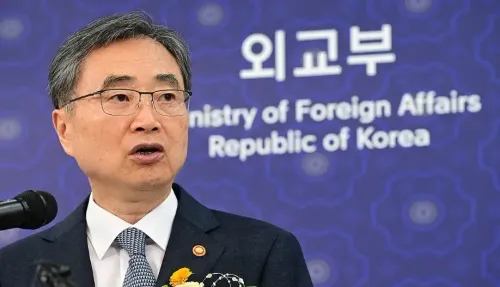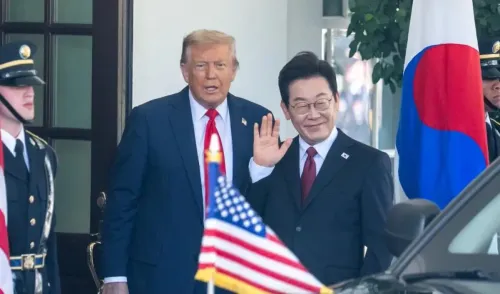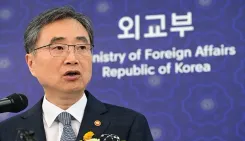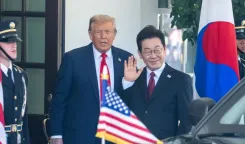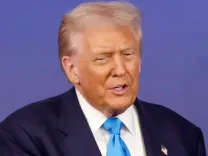Is Pakistan Losing Control Amid Afghanistan Tensions and PoK Protests?
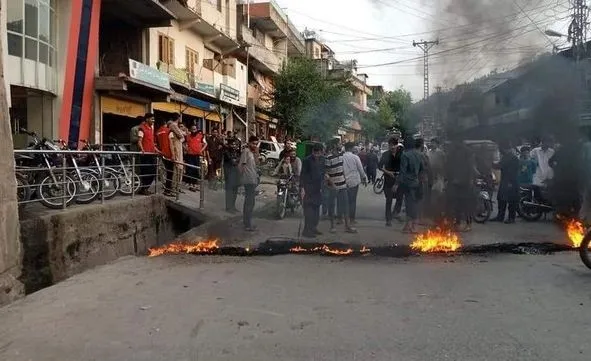
Synopsis
Key Takeaways
- Pakistan is facing severe internal and external crises.
- Tensions with Afghanistan have escalated.
- Protests in Pakistan-occupied Kashmir reflect long-standing grievances.
- Religious extremism is on the rise, challenging state control.
- Pakistan's political institutions appear increasingly fragile.
Islamabad, Oct 16 (NationPress) Pakistan is currently enduring a phase of intense internal and external chaos, marked by escalating tensions with Afghanistan along the border, significant protests in Pakistan-occupied Kashmir (PoK), and rising religious unrest. This alarming situation underscores Islamabad's diminishing grip across various fronts, as highlighted in a recent report.
The report from 'The Global Kashmir' illustrates Pakistan as a nation that finds itself increasingly isolated, fragmented, and injured due to failed foreign endeavors, waning domestic control, and a populace that is losing faith.
"Pakistan is again experiencing profound internal and external strife. In recent days, the country has contended with military confrontations with Afghanistan, violent demonstrations in Pakistan-occupied Kashmir, and political unrest fostered by religious factions such as Tehreek-e-Labbaik. These events collectively depict a bleak scenario of a state succumbing to a deepening crisis, with its leadership seemingly powerless against mounting instability," the report states.
The situation at the Pakistan-Afghanistan border intensified following Pakistani airstrikes on Afghan soil, purportedly targeting hideouts of the Tehreek-e-Taliban Pakistan (TTP). In retaliation, Afghanistan condemned the strikes and initiated counterattacks against Pakistani positions. A fierce exchange of gunfire erupted between the two nations' forces in the Kurram region and at pivotal crossings like Torkham and Chaman. Taliban officials alleged significant losses on the Pakistani side, with Islamabad acknowledging casualties while attempting to minimize the figures.
In an opinion piece for Global Kashmir, Syed Jahanzeeb noted, "While the western border ignited, unrest surged within Pakistan-occupied Kashmir. The Awami Action Committee has spearheaded large-scale protests throughout the region, accusing Islamabad of exploiting local resources and denying fundamental rights to the inhabitants. Protesters are demanding fair electricity rates, subsidies for essential goods, and the removal of assembly seats reserved for Kashmiri refugees in Pakistan, arguing that these seats distort democratic representation and enable Islamabad to exert control over local governance from a distance."
During these protests, clashes erupted between demonstrators and security forces in Mirpur, Kotli, and Rawalakot, resulting in numerous fatalities and injuries. In response to the unrest, Pakistani authorities imposed curfews, restricted internet access, and deployed additional troops instead of addressing fundamental grievances. The PoK protests illustrate decades of neglect and exploitation by Pakistani authorities, who have utilized the territory for propaganda while neglecting the genuine needs of its residents.
The report further reveals that religious extremism is destabilizing major urban centers in Pakistan. The Tehreek-e-Labbaik Pakistan (TLP), notorious for its radical street influence, organized protests under the banner of the 'Labbaik Ya Aqsa' Million March. Clashes broke out between police and protesters in Lahore and Rawalpindi as security forces attempted to prevent their march toward Islamabad. Pakistani authorities also invoked Section 144 and suspended mobile and internet services in multiple regions. The TLP’s ascent illustrates the fragility of Pakistan's political institutions. Successive Pakistani governments have, instead of combating extremism, relied on these groups for short-term political gains.
"These three crises — border conflict with Afghanistan, rebellion in Pakistan-occupied Kashmir, and religious unrest within the country — collectively portray a Pakistan losing control on numerous fronts. Its foreign policy lacks direction, its economy is in decline, and its society is sharply divided along political, sectarian, and regional lines."
Today, Pakistan presents the image of a nation ensnared in its own contradictions. It stifles protests in the territories it claims to represent, allows religious extremists to flourish, and panics when they challenge its authority.
The report concludes: "Currently, Pakistan stands isolated, fragmented, and injured. Its foreign ventures have backfired, its domestic authority is eroding, and its citizens are losing hope. Once characterized as a robust Islamic republic, it now resembles a nation on the brink, struggling to maintain cohesion while the world observes its gradual descent into chaos."


